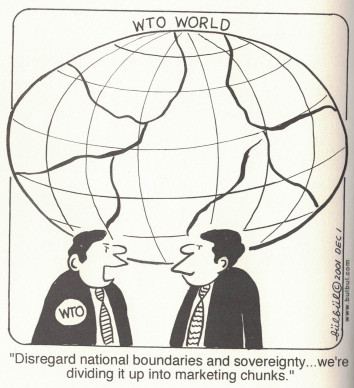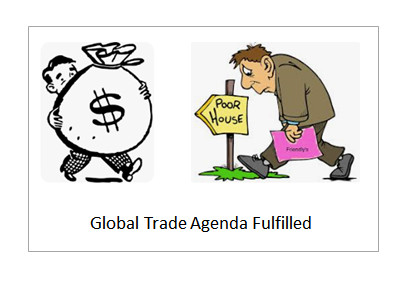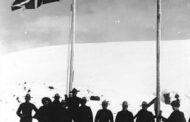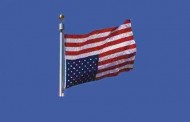Global Economic Convergence: Nation-states out, Regions in
Jeffrey Sachs is a well-known American economist, academic, and public policy analyst who has made significant contributions to the fields of sustainable development and economic development. He has held various prestigious positions throughout his career, including serving as the director of The Earth Institute at Columbia University and as a special advisor to the United Nations Secretary-General on the Millennium Development Goals. Sachs has authored numerous books and articles on topics related to economics, poverty reduction, and sustainable development.
Theft of the American economy – transferring sovereignty to global institutions via so-called trade agreements began during the Kennedy Administration in 1962. The U.S. Congress voted to allow non-tariff issues to be negotiated by the US Trade Representative.
Kennedy, signing the Trade Expansion Act of 1962. This legislation established the position of the US Trade Representative within the Executive Branch.
Lori Wallach and Patrick Woodall
Who’s Trade Organization? 2004
“There are few people in the world who have actually read the whole text, which establishes the WTO and the 18 major agreements setting rules to which every signatory nation must conform their domestic policies—which WTO enforces. A useful way to understand what the WTO’s terms are really about is to focus on the themes that run through all of the WTO’s agreements. These include:
- privatize and commodify all elements of the economy and society by pushing countries to treat everything from bulk water and public services to genetic materials and food as commodities to be made accessible as new for-profit tradeable units;
- deregulate by constraining the role of all levels of government and designating some domestic environmental, food safety and other regulations as trade barriers that must be eliminated;

- harmonize by pressuring countries to replace national and local policies with uniform global standards that are presumed to be WTO compliant while national standards providing a greater level of consumer protection in pesticide and meat inspection standards, environmental policies, accounting rules and more are exposed to WTO challenge;
- “liberalize” investment by requiring governments to eliminate policies regulating who can own what, including essential services, and to eliminate conditions on investors, such as requiring certain labor standards or environmental protections;
- “liberalize” finance by requiring countries to eliminate policies regulating banks, currency trading, derivatives, and stock markets;
- manage trade according to WTO rules. In contrast to “free trade:’ this is a “corporate-managed trade” system because of the special protections it provides for certain interests. For instance the WTO protects subsidies given to agribusiness to export commodities (thus allowing them to be dumped on markets at prices below the cost of production) while certain domestic subsidies to support small farms are characterized as illegal trade distortions;
- create new property protections, for instance requiring nations to adopt twenty-year monopoly patents on a wide array of items and giving foreign investors to special rights not enjoyed by local businesses or citizens and
- homogenize culture and consumer demands by treating culture as another commodity and eliminating government policies aimed at maintaining diverse media content.
The ABC’s of Trade Policy and Education
Alan Greenspan, Surrender of the Economy and Its Consequences
Reason Foundation: Transforming Government through Privatization, 20th Anniversary Edition, Annual Privatization Report, 2006.
Industry Capture of Government Leading to Systemic Failure






